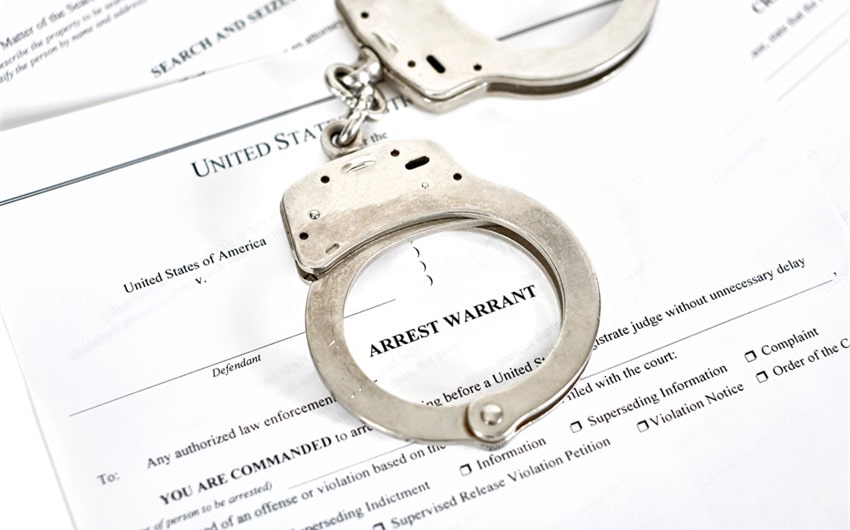Can You Fly If You Have a Warrant?
Maybe you’ve booked a trip and just found out there’s a warrant with your name on it. Or maybe you’ve been living with that knowledge and wondering how far you can go before someone stops you. The question is simple: Can you fly if you have a warrant? But the answer depends on a web of factors—what type of warrant, where you’re flying, and whether anyone’s actively looking for you. Let’s untangle what actually happens when you step into an airport with a legal cloud hanging over your head.
What Kind of Warrant Are We Talking About?
Not all warrants are the same. And not all carry the same consequences at airport security or border crossings. Here are the most common types:
- Bench warrant: Issued when you fail to appear in court. These can be minor (like missing traffic court) or more serious.
- Arrest warrant: Issued when law enforcement has evidence to arrest you for a specific crime.
- Outstanding warrant: A general term for any active warrant that hasn’t been resolved or cleared.
- Federal warrant: Issued by a U.S. federal court—often related to major crimes or crossing state lines.
- Fugitive warrant: When you’re wanted in one jurisdiction but caught or flagged in another.
Why it matters: Some warrants are entered into national law enforcement databases. Others stay local. This determines whether you’re likely to be stopped during travel.
Can You Fly Domestically with a Warrant?
Yes, in many cases, you can board a domestic flight within the U.S. if you have a warrant. But there are caveats. Here’s how it breaks down:
1. TSA Does Not Actively Check for Warrants
The Transportation Security Administration (TSA) is responsible for flight safety—not law enforcement. Their agents check IDs and boarding passes but do not routinely run warrant checks through national databases like NCIC (National Crime Information Center).
2. But Your ID Might Trigger an Alert
In some cases, especially if your name is flagged in a major database, scanning your ID can alert federal authorities. This is rare but possible if:
- You have a federal warrant or are listed on a watchlist.
- You’re part of an ongoing investigation.
- The warrant has been entered into databases TSA has access to.
In these situations, TSA may notify local or federal law enforcement, who can choose to intercept you at the airport.
3. Police Presence Varies by Airport
Some airports have more law enforcement surveillance than others. In major city hubs, it’s more likely that someone with an active warrant might be noticed—especially if your name is flagged in conjunction with other issues like unpaid child support, parole violations, or immigration concerns.
Bottom line: If your warrant is local and not in national databases, you may be able to fly domestically without being stopped. But it’s never a guarantee.
Can You Fly Internationally with a Warrant?
Usually not. International travel is much more restricted if you have an active warrant—especially one that’s serious or federally listed.
1. Passport Restrictions
You likely won’t be able to renew or apply for a passport if there’s a felony warrant against you. The U.S. State Department can revoke or deny passports for individuals under active warrants for certain offenses.
If you already have a passport, it may not be flagged immediately—but trying to leave the country can raise red flags at exit or entry points.
2. Border Control and Exit Checks
Many countries (including the U.S.) perform exit and entry screening. If you’re attempting to leave the U.S. with a known warrant, Customs and Border Protection (CBP) may stop you at the airport. Likewise, other countries may deny you entry if they see a warrant tied to your identity in international databases like INTERPOL.
Exception: Some minor warrants may not be picked up by systems abroad—but the risk of being detained, denied boarding, or arrested mid-journey remains high for anything above a misdemeanor.
Do Airlines Know About Your Warrant?
No, airlines themselves do not have access to warrant databases. When you buy a ticket, the airline checks your name against no-fly lists maintained by the U.S. government (such as for terrorism or national security risks), not for outstanding criminal warrants.
However, if law enforcement has flagged your reservation through an alert or court order, the airline may be notified and required to act accordingly. Thankfully, you can use an online criminal records lookup service to review your profile and see if there is anything on your records that could restrict you from taking a flight.
What Happens If You’re Stopped at the Airport?
If you’re flagged at check-in or at a security checkpoint, law enforcement could:
- Detain you on the spot
- Escort you to a holding area for questioning
- Arrest you if the warrant is active and extraditable
Whether you’re actually arrested depends on:
- The severity of the warrant
- Jurisdictional enforcement (some warrants aren’t enforced across state lines)
- Officer discretion
Can You Be Extradited for a Warrant While Traveling?
Yes, especially if it’s a felony or federal warrant. Even if you’re stopped far from the jurisdiction where the warrant was issued, law enforcement can detain you and arrange for extradition if:
- The warrant includes a nationwide pickup radius
- The issuing state confirms they want to pursue extradition
- You’re found in violation of probation or parole terms
For minor offenses like unpaid traffic tickets, it’s less likely. But the risk increases with the seriousness of the charge.
What Should You Do If You Have a Warrant and Need to Travel?
1. Consult a Lawyer Immediately
Don’t gamble. A defense attorney can determine whether your warrant is active, what type it is, and whether it’s likely to interfere with travel. They may even be able to resolve the issue before your trip.
2. Run a Warrant Check
You can request a records search from your local court, sheriff’s department, or use a legal background check service. Be cautious—running it yourself may alert authorities depending on the system.
3. Resolve the Warrant Before Traveling
Clearing the warrant before flying is the safest route. This might involve:
- Paying fines or appearing in court
- Quashing the warrant through a legal process
- Arranging a new court date and filing paperwork with the court
Some warrants can be resolved in a day or two. Others may take longer—but traveling with an active warrant is always a bigger risk.
Can You Travel by Other Means (Train, Bus, Car)?
Yes, but it doesn’t mean you’re in the clear. While Amtrak, Greyhound, or highway travel doesn’t involve TSA, you can still be stopped:
- At state lines during random traffic stops
- At checkpoints (especially near borders)
- During ID checks for trains or buses
Warrants may still come up if your ID is scanned by any law enforcement official during your trip.
So, Can You Fly with a Warrant?
Domestically? Sometimes.
Internationally? Rarely.
Safely and legally? Not really.
Flying with an active warrant is a legal risk that could turn a vacation into a confrontation—or worse, jail time. While many people do it without consequence, it only takes one flagged document or alert to unravel everything. The smartest thing to do is pause, resolve the issue, and then travel without the weight of being caught mid-journey.
If the world is calling, make sure your past isn’t the thing that holds you back.







